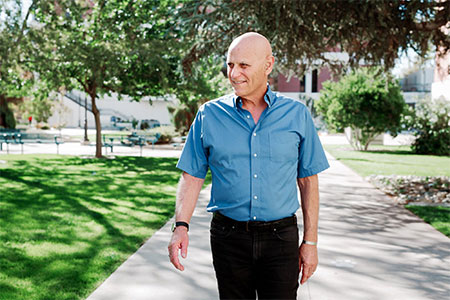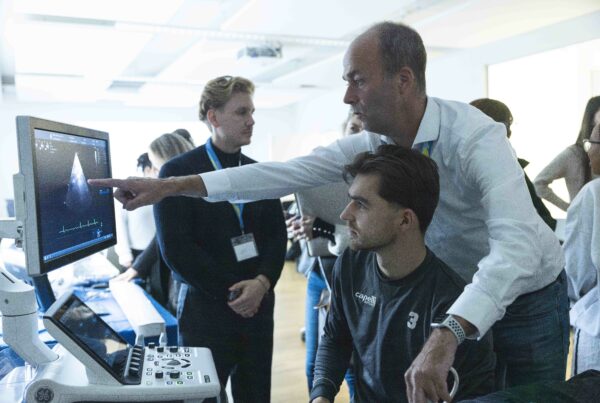
Last Friday, our students had the opportunity to attend a lecture by Prof. Steven Hayes, PhD followed by a Q&A session. Hayes teaches at the Department of Psychology at the University of Nevada in Reno, USA, and is the founder of Acceptance and Commitment Therapy (ACT), a derivative of Cognitive Behavioral Therapy.
Hayes opened his talk by saying that an increasingly complex world and the challenges it presents mean that more and more people are suffering from mental illness. It is not just the corona pandemic that is affecting the mental health of many – issues such as racism, violence, structural inequalities, and social media can also have a negative impact on the human psyche.
In order to treat mental illnesses, a variety of therapeutic methods have been developed over the past 150 years – including Acceptance and Commitment Therapy, which focuses on initiating change processes in human behavior. In the past, Hayes says, too little attention has been paid to this in the context of other methods of behavioral or psychotherapy in general. To achieve a transformation in the thinking and behavior of patients, ACT primarily focuses on changeable processes that lead to positive experiences and thus to a change in perception. Because, Hayes says, “Not practice makes perfect, feedback from practice makes perfect and experience predicts confidence.” The goal of ACT therapists is not to “fix” their clients, but rather to strengthen them mentally, to redirect needs and motives that have been misdirected for various reasons in a new direction, to create a new context of experience, and thus to increase their psychological flexibility.
Following the presentation, Hayes took plenty of time to address the many questions posed by participants.








